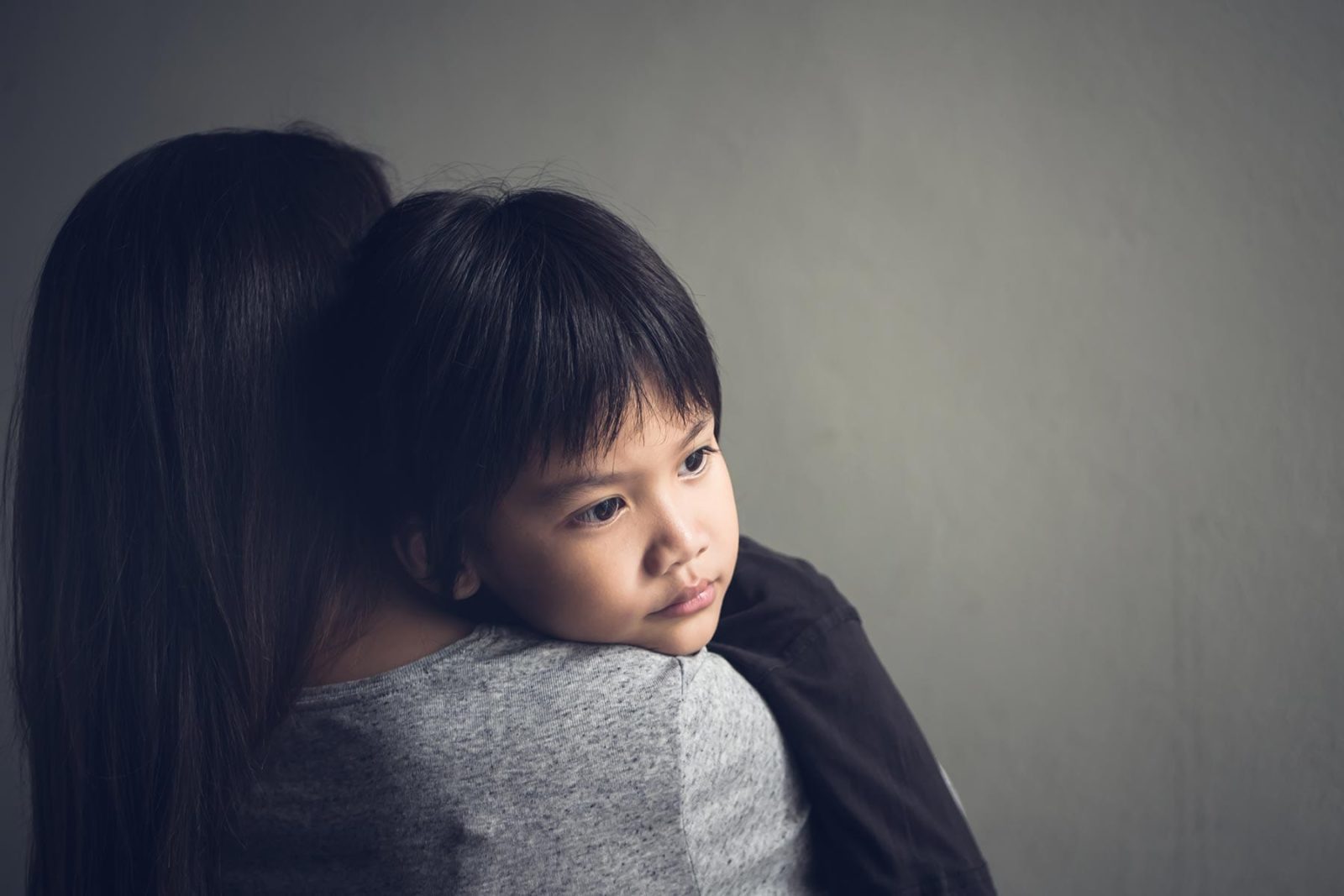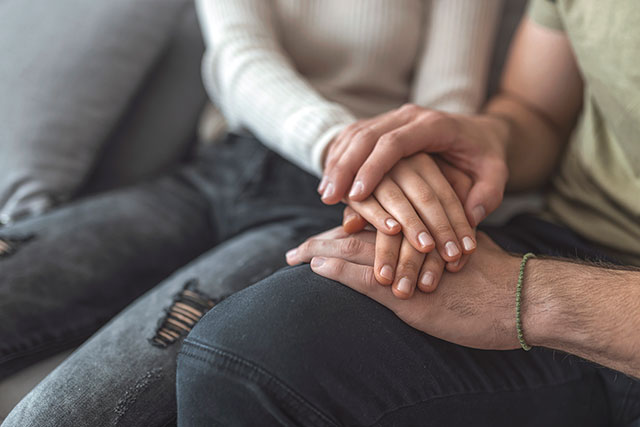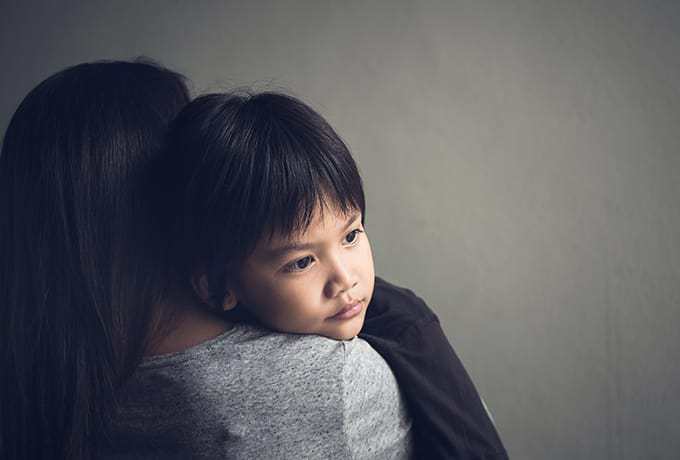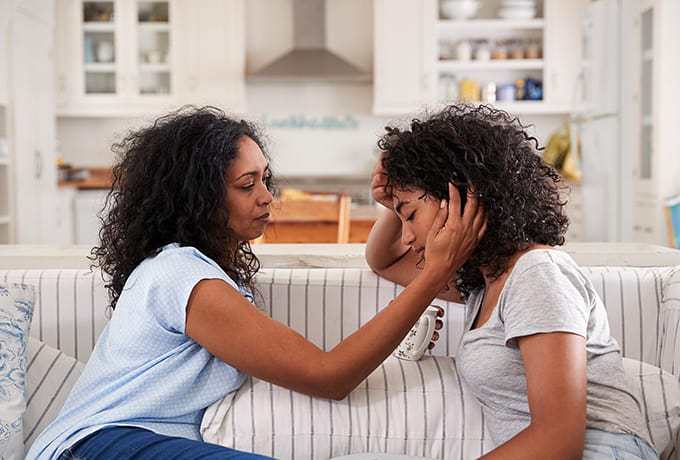The idea of talking to children about suicide is daunting. This page is designed to give a helping hand to parents or carers supporting children; providing advice and insight into how best to talk to, and support, a child bereaved by suicide.
Supporting children: Common grief reactions after a suicide
Children react to and express their grief differently from adults. They often express their feelings through their behaviour and play.
As a carer you may notice the child regressing (returning) to younger behaviours such as wetting the bed, or becoming clingy, anxious, and demanding of your attention.
The child may also express their grief through play, repeating the same game or story over and over again or perhaps including re-enactments of death and violence in their play. These types of behaviour and play are normal for any grieving child.
Talking about a suicide death with children
It will usually be up to you to choose the time to talk about the death. You can sometimes find cues in their play and other behaviour indicating that the child is ready to have some conversation about the death.
However you start the conversation, here are some important things to remember:
- Ensure that you talk to the child in a safe space where there are no distractions.
- In most cases talk to the child as soon as possible. However, keep in mind that if the child doesn’t want to talk, you cannot force a conversation. Let them know that you are available to talk about the death when they feel more ready.
- You can have a limited one-sided conversation if you feel this appropriate. Outline the things you would like them to know, these may be facts about the death, how you and others are feeling, inviting but not requiring the child to engage in the conversation with you. These one-sided conversations act as stepping stones for the child in their understanding of the death, and over time they can move from being a passive to an active participant in subsequent conversations.
- It is best to be honest (in an age-appropriate way) about the circumstances of the death when supporting children. At some point the truth will come out, and it is better for the child to be told in a safe and nurturing space by a main caregiver than for the child to receive only half the truth from someone else. Reassure the child that they did not cause the death. Children may be asking themselves, “Did I cause this to happen?” and often feel guilty or responsible for the death.
Supporting children using age-appropriate language
- Explain truthfully on a level that the child can understand what caused the death. There is no need to go into upsetting or unnecessary details.
- When supporting children that are young, it may be helpful to ask what they think “suicide” and “being dead” means. This provides an opportunity to correct any misunderstandings they have about death or suicide.
- The word suicide can present some confusion for young children. It is here that you could say that the person “killed themselves” or “made their body stop working.” Avoid telling the child that the person has “gone to sleep” or “left us”, as these statements can easily be misunderstood. Such statements can cause anxiety about sleeping or feelings of being abandoned.
- If unsure how to answer questions that a child may ask, or how to talk to the child, seek advice. You may wish to seek some counselling face to face, or contact the Suicide Call Back Service for online or telephone counselling.
If you have told a different story or lied about the suicide
It’s not too late to tell your child if you have already told them a different story about the circumstances of the death.
You may want to explain that sometimes adults can have difficulties talking to children about these things and you didn’t know how to best explain the death at the time. Apologising and correcting truths about the death allows you to be a positive role model by teaching children a valuable lesson about how lies can be corrected.
Concerns about copycat behaviour in children
A common concern for parents or main carers is about their children copying suicidal behaviour. Through explaining that sometimes people find it hard to talk about their problems or worries, you can emphasise the importance of talking about feelings whenever they may be down or sad. Explore possible key persons that the child can talk to if you or their main carer is not available, such as a relative, school teacher, or counsellor.
It is important to reassure the child that suicide is not common and that many things in the dead person’s life led to them feeling so deeply unhappy, troubled and confused. Reassure the child that we all experience positive and negative feelings as part of life.
Participating in family rituals and the funeral
The viewing and funeral service provides an opportunity for children to say goodbye and express some grief.
It is important for the child to feel important and involved.
One way to involve the child is to invite them to contribute to the funeral service by choosing a favourite song, writing a letter or drawing a card.
Prior to attending the funeral service it would be helpful to discuss with the child what will happen at the funeral, where it will be held and what it will look like. You could also mention that people will be sad and quiet so they are prepared for what the service will be like.
Importance of memories
Memories not only remind the child of the relationship that they have with the deceased but also play a critical role in the child’s grieving process. There are a number of activities children can do to evoke or symbolize their relationship with the deceased. Create a memory box or memory book which may contain photos, poems, artworks, pressed flowers or other mementos. You could also look at photos, create a painting or drawing, or plant a tree.
Dealing with the child’s school after a suicide
It is important that you don’t assume that the school teachers or counsellors know what has happened. Contact the school and advise them of the death and circumstances before your child goes back to school. You may also want to rehearse with the child what they will say to their friends or teachers so that they are well prepared. Maintain contact with the teachers and inform them of any anniversary dates and extra stressful times.
Things you can do at home
While adults may be grieving and their jobs or day-to-day duties are put on hold, children still need to adhere to their daily routine for a sense of security. Children need to know who will be there to care for them. In circumstances where it is the parent who has died by suicide, the child needs to be reassured that they will be safe and cared for. Let them know that it is okay to feel happy, laugh and play. They don’t have to feel sad all the time.
Self-care and support
It can be difficult as a parent or main carer to tend to your child’s needs when you may be struggling with your own grief. It is vital that you look after yourself and surround yourself with some extra support so that you do not have to go through this alone.
If you have lost someone to suicide, and need someone to talk to, call the Suicide Call Back Service on 1300 659 467 to speak to a counsellor.If it is an emergency, please call 000.









